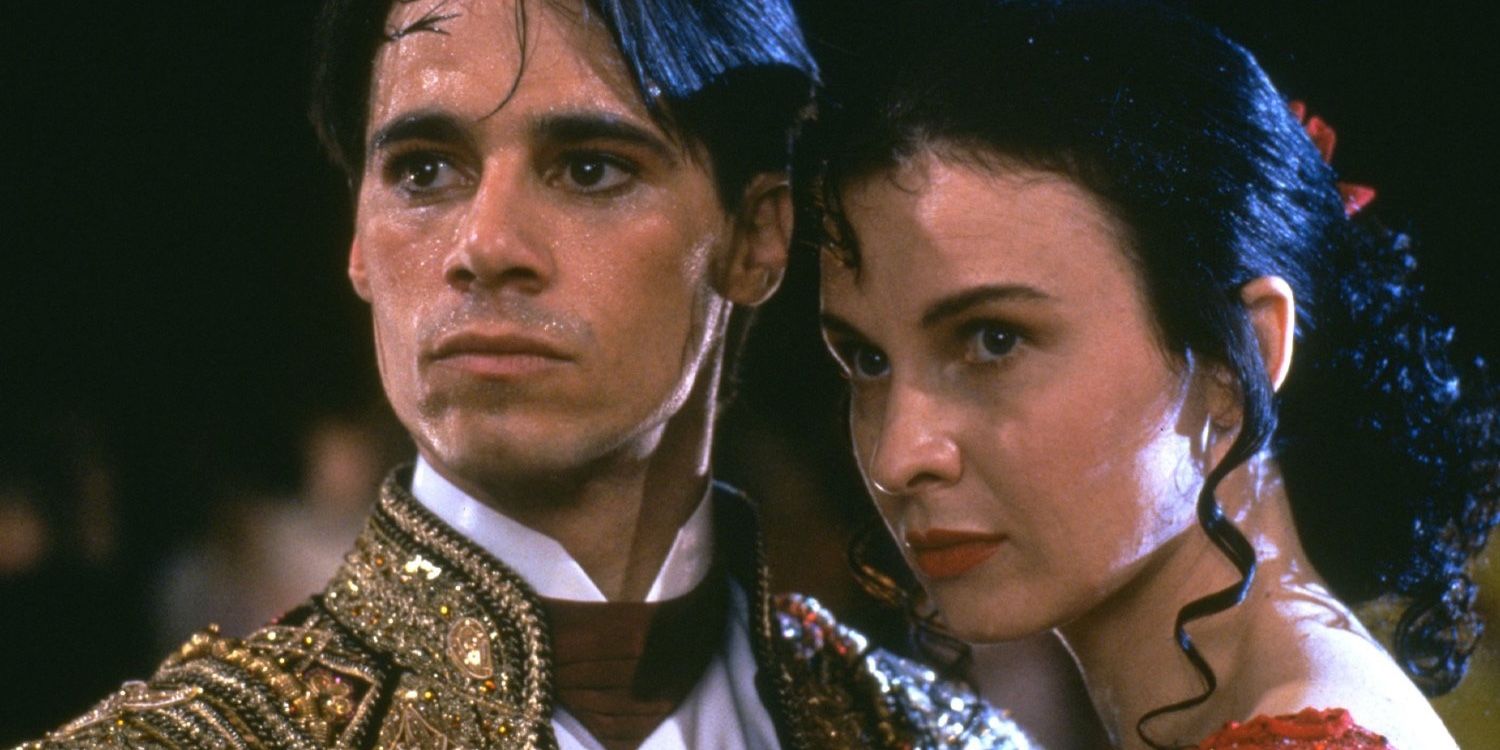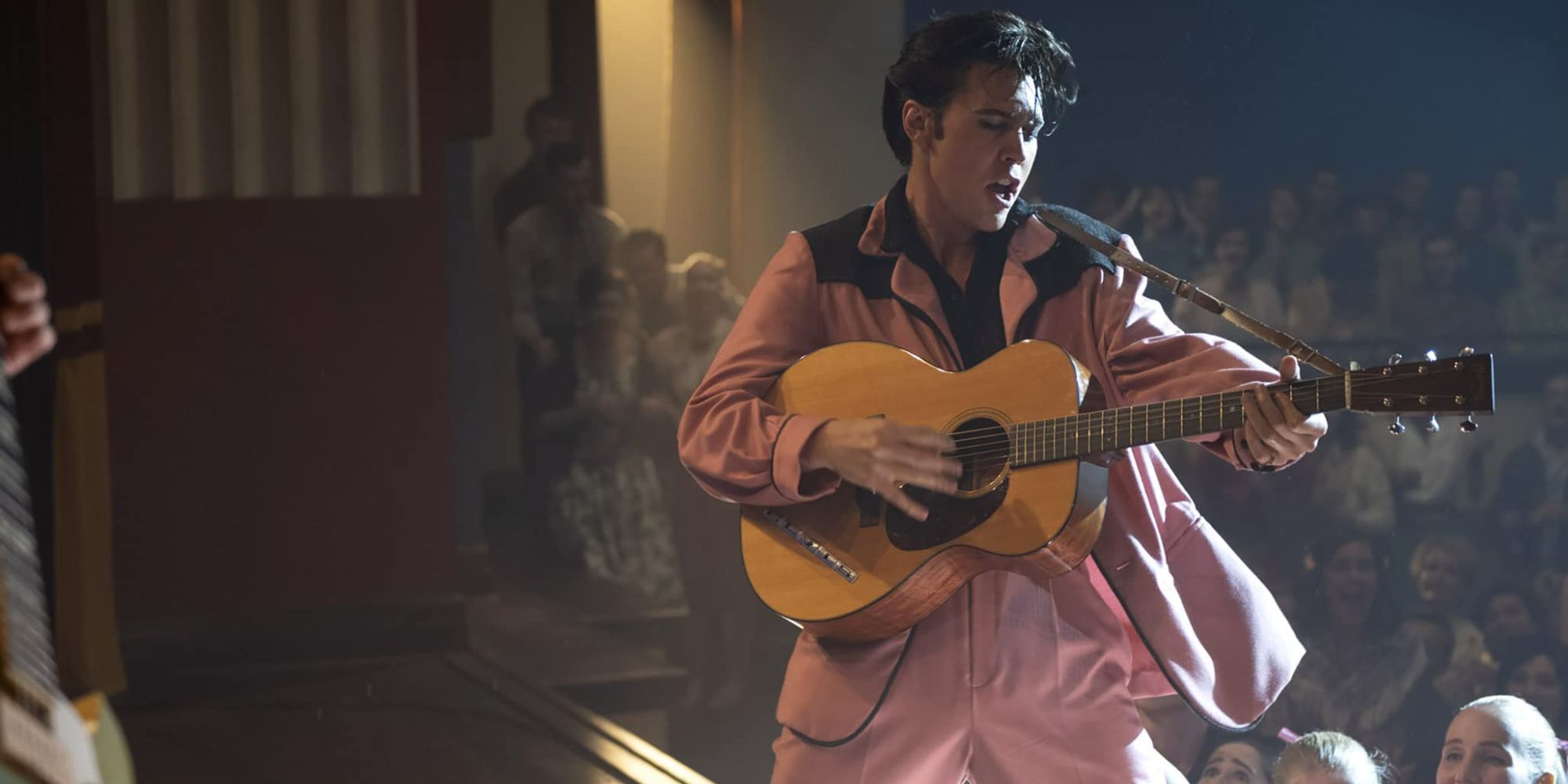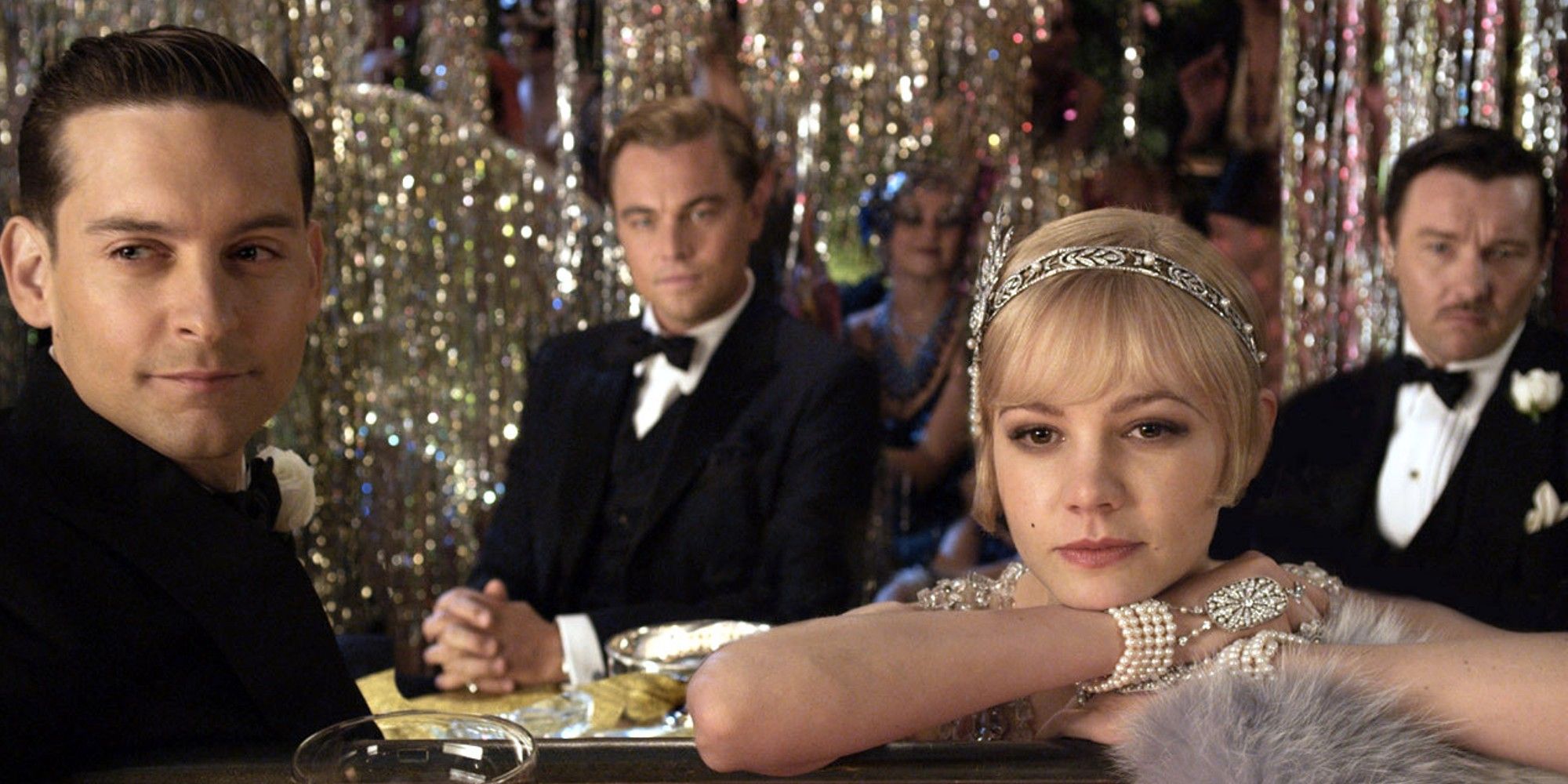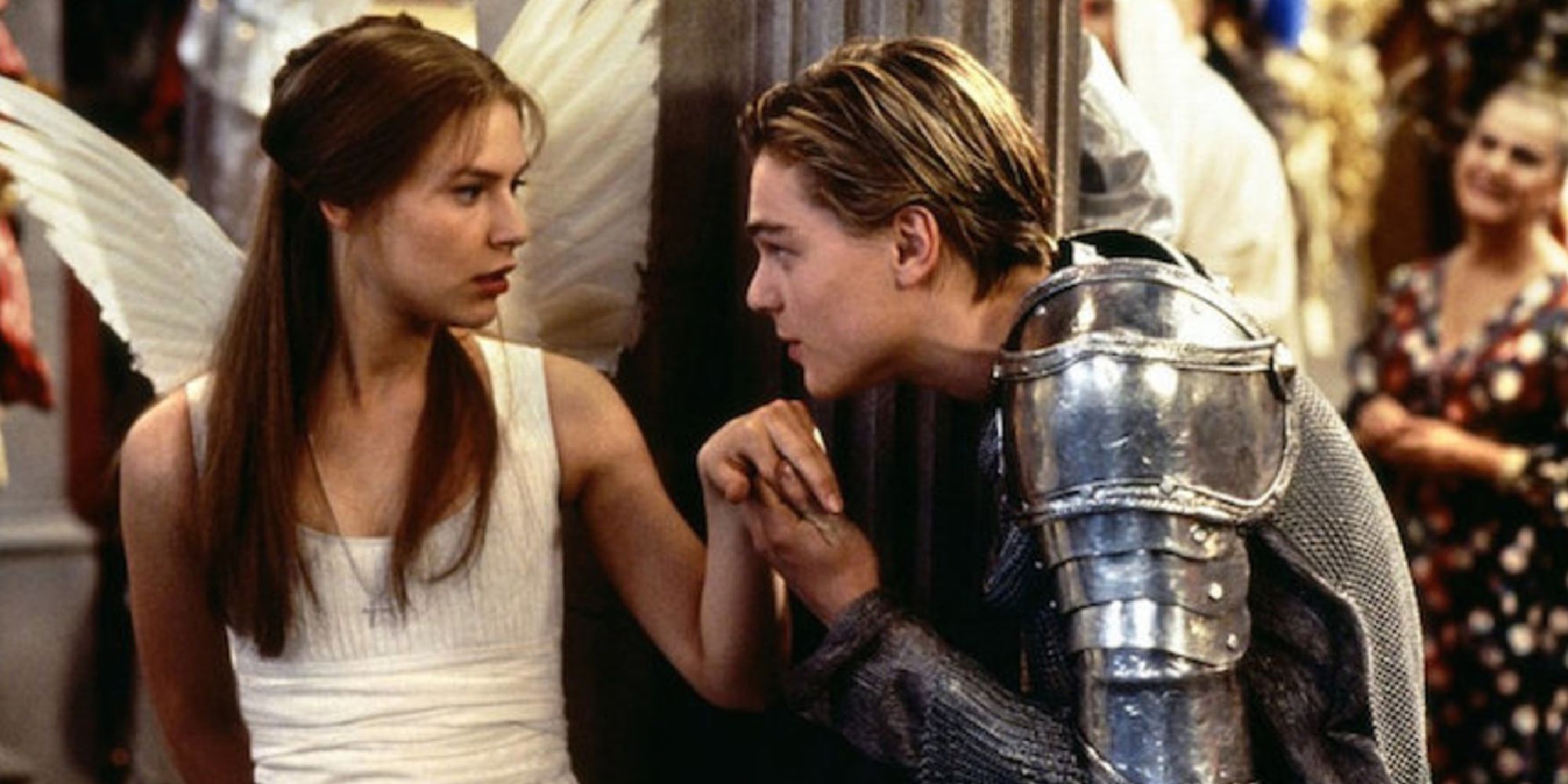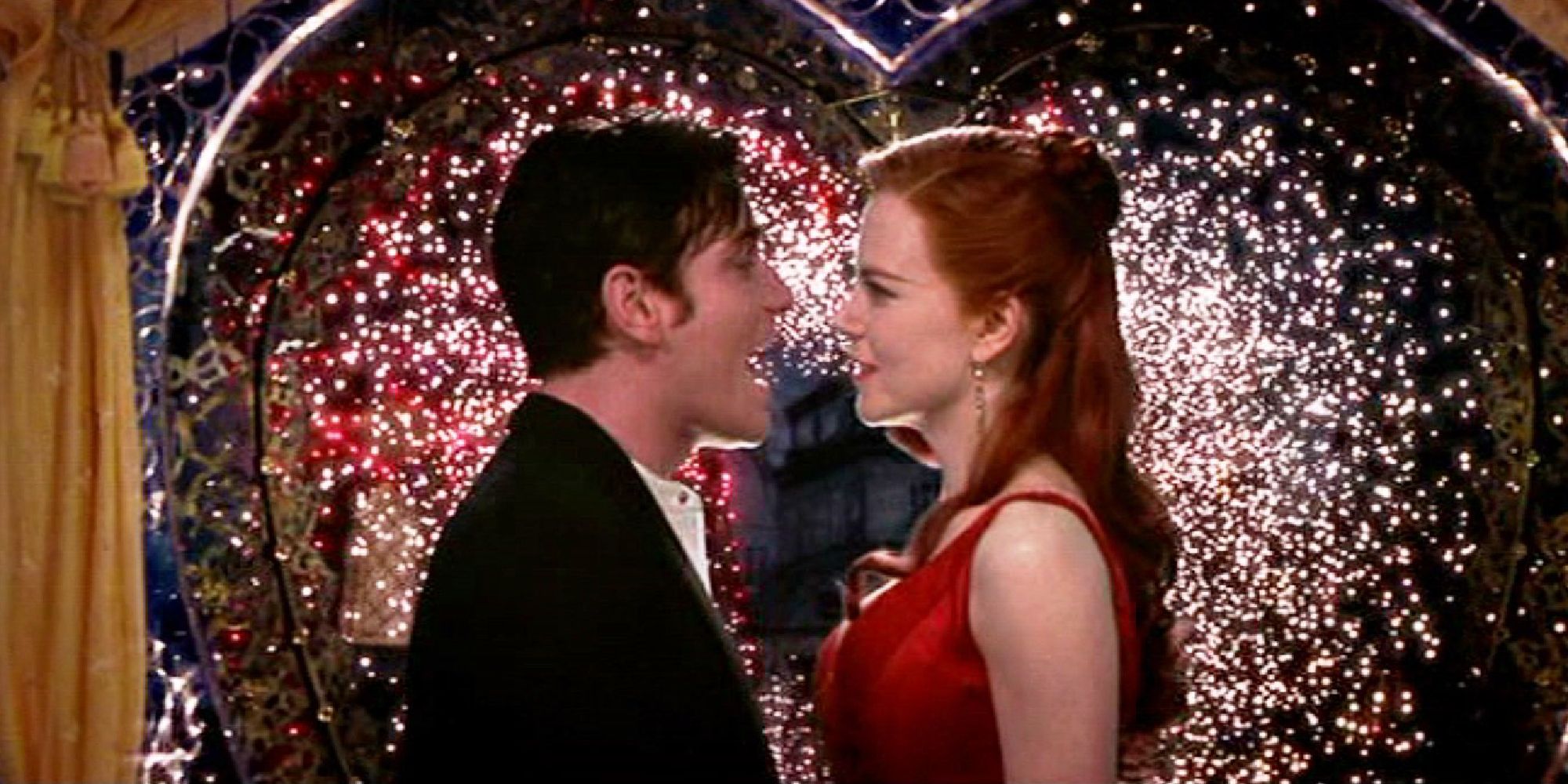For better or worse, Baz Luhrmann has no chill as a director, constantly going big and dizzyingly wild with just about every movie he makes. His filmography isn’t the biggest thing in the world when you look at the number of movies he’s made. Essentially, it sits at half-a-dozen feature films, and considering the first was made in 1992 and the most recent was in 2022, it’s fair to say he’s someone who takes his time with each film he makes.
But Luhrmann makes up for that “low” number of movies because of how big those movies often get, whether it’s in runtime, style, scale, or all of the above. He’s a maximalist director, and his love of the bombastic is something that you may or may not get on board with. Trying to rank everything he’s done based on how maximalist they are isn’t easy, because they’re all flashy and ambitious movies in differing ways… but here goes nothing, in any event.
6 ‘Australia’ (2008)
Starring: Nicole Kidman, Hugh Jackman, Essie Davis
Australia, when viewed a certain way, is Baz Luhrmann’s biggest film to date, but big doesn’t necessarily equal maximalist. This 2008 film is an epic, running about 15 minutes shy of three hours and having a fairly large cast of characters, not to mention an ambitious story. It takes place mostly in the titular country’s Northern Territory, and is set partly before World War II, and partly during the conflict in question. It’s also, in the tradition of the epic genre, largely a romance-focused story.
It’s a film that does have some spectacle and things to be wowed by, but it’s stylistically rather ordinary and a bit bland, for lack of a better word, compared to the more distinctive and dazzling movies Luhrmann’s directed. His other films are more maximalist and have more of a personality. Australia, in contrast, was perhaps an ambitious effort on the director’s part to branch out, go bigger, and make something a little broader, but it didn’t really pay off. It’s both Luhrmann’s worst film and his least maximalist, despite its scope.
5 ‘Strictly Ballroom’ (1992)
Starring: Paul Mercurio, Tara Morice, Bill Hunter
Forming the first part of a thematic trilogy, Strictly Ballroom is far more maximalist in the traditional sense of the word than Australia. Though things would get even wilder and more extravagant in later Baz Luhrmann movies, this feature debut of his is already more maximalist than most filmmakers are willing to go. The fact that Strictly Ballroom runs a little leaner than any other Luhrmann film (it’s the only one of his that’s under two hours long) and is a bit smaller in scale are the only things that keep it down, ranking-wise.
It’s a solid proof-of-concept film, in a way, for showcasing Luhrmann’s style, revolving around ballroom dancing and two people taking part in a competition that find themselves “unexpectedly” falling in love. It’s very flashy and in-your-face, but also quite charming as far as romantic comedies go. Luhrmann would go on to bigger and (arguably) even better things following Strictly Ballroom, but it’s an impressive and appropriately theatrical film for the then-up-and-coming director.
Strictly Ballroom
- Release Date
- August 20, 1992
- Cast
- Paul Mercurio , Tara Morice , Bill Hunter , Pat Thomson , Gia Carides , Peter Whitford
- Runtime
- 94
- Main Genre
- Comedy
4 ‘Elvis’ (2022)
Starring: Austin Butler, Tom Hanks, Olivia DeJonge
There is a very slight sense of things being held back in Elvis, at least by Baz Luhrmann’s standards. There’s still an explosiveness to the style and a good amount of bombast here by the standards of most biographical films, but it’s perhaps the film’s nature of being a biopic that meant things getting reined in to some extent. Australia might’ve been a film with a historical setting, but it was otherwise fictional. Yet with Elvis, the film does have to stick to the story of its central figure – Elvis Presley – more or less.
Elvis does occasionally slow down, especially in its final act, though the runtime is lengthy, providing plenty of opportunities for Elvis to also be big, loud, and sometimes wild. It goes big and gets a little quieter at other times, ultimately being about as bombastic as you can get while telling a story that’s both true and more than a little sad. You’ve also got Tom Hanks chewing quite a bit of scenery, so that does help up the maximalism of it all.
- Release Date
- June 24, 2022
- Runtime
- 159 minutes
3 ‘The Great Gatsby’ (2013)
Starring: Leonardo DiCaprio, Tobey Maguire, Carey Mulligan
Some books are potentially impossible to adapt to the big screen, but The Great Gatsby has never suffered from such a predicament. Debating whether any movie has successfully adapted the book to screen is another matter altogether, but there are two prominent movie versions that couldn’t be more different. The version starring Robert Redford, from the 1970s, is very restrained and rather traditional in its approach to the source material, treating it in an almost sacred way.
Then you’ve got Baz Luhrmann’s The Great Gatsby, which pushes things to the limit and goes pretty wild with its depiction of wealth, partying, and tragic romance in the Roaring Twenties. If the intent was to approximate the lavishness of such an era by depicting it in a way that could be viewed as flashy and wild by more modern-day standards, then 2013’s The Great Gatsby can be seen as a success. Understandably, though, those after a more historically accurate or truly “true” to the source material adaption might walk away from this one confused or even offended.
The Great Gatsby (2013)
- Release Date
- May 10, 2013
- Runtime
- 143 Minutes
2 ‘Romeo + Juliet’ (1996)
Starring: Leonardo DiCaprio, Claire Danes, Jesse Bradford
Baz Luhrmann’s style is perhaps better suited to the story of Romeo and Juliet than it was to The Great Gatsby. Romeo and Juliet is one of Shakespeare’s broadest and biggest – in an emotional sense – plays, and Luhrmann’s take on it, Romeo + Juliet, is suitably grand, unabashedly melodramatic, and overall youthful. All that’s fitting, because this is a story about two young people falling in love with terrible consequences, owing to their respective associations with two continually clashing groups.
Romeo + Juliet sticks to the source material as far as the dialogue is concerned, but it takes gleefully big swings stylistically and setting-wise; regarding the latter, it takes place in America during what seems to be the 1990s. It’s a passionate film and successfully captures the dramatic ups and downs of young love while also being appropriately tragic, owing to the source material it’s adapted from. Romeo + Juliet is noisy and unapologetically grand, and the approach largely works wonders.
Romeo + Juliet
- Release Date
- November 1, 1996
- Runtime
- 120 minutes
1 ‘Moulin Rouge’ (2001)
Starring: Nicole Kidman, Ewan McGregor, John Leguizamo
Without question, the most extravagant and maximalist of Baz Luhrmann’s films would have to be Moulin Rouge, which is a relentless jukebox musical about doomed love. It takes place around the beginning of the 20th century while featuring numerous songs that ended up defining that century in question. In that sense, it’s a little like how The Great Gatsby featured music wildly out of step with the actual time period depicted, but Luhrmann creates his own realities on screen and makes such decisions work, in the end.
Moulin Rouge is impossibly big in the emotions it unpacks, with the story being ridiculously melodramatic and tragic, and all that’s further accentuated by the hyperactive editing and showy performances. It’s a movie that feels honestly manic at times, and it’s not easy to get on the film’s non-stop, frantic wavelength at first. Settling into a groove does allow one to enjoy much of Moulin Rouge, but it pushes maximalism to the max, and might be the “most” Baz Luhrmann movie that Baz Luhrmann has directed so far.
Moulin Rouge!
- Release Date
- May 24, 2001
- Runtime
- 127 minutes
Source link

